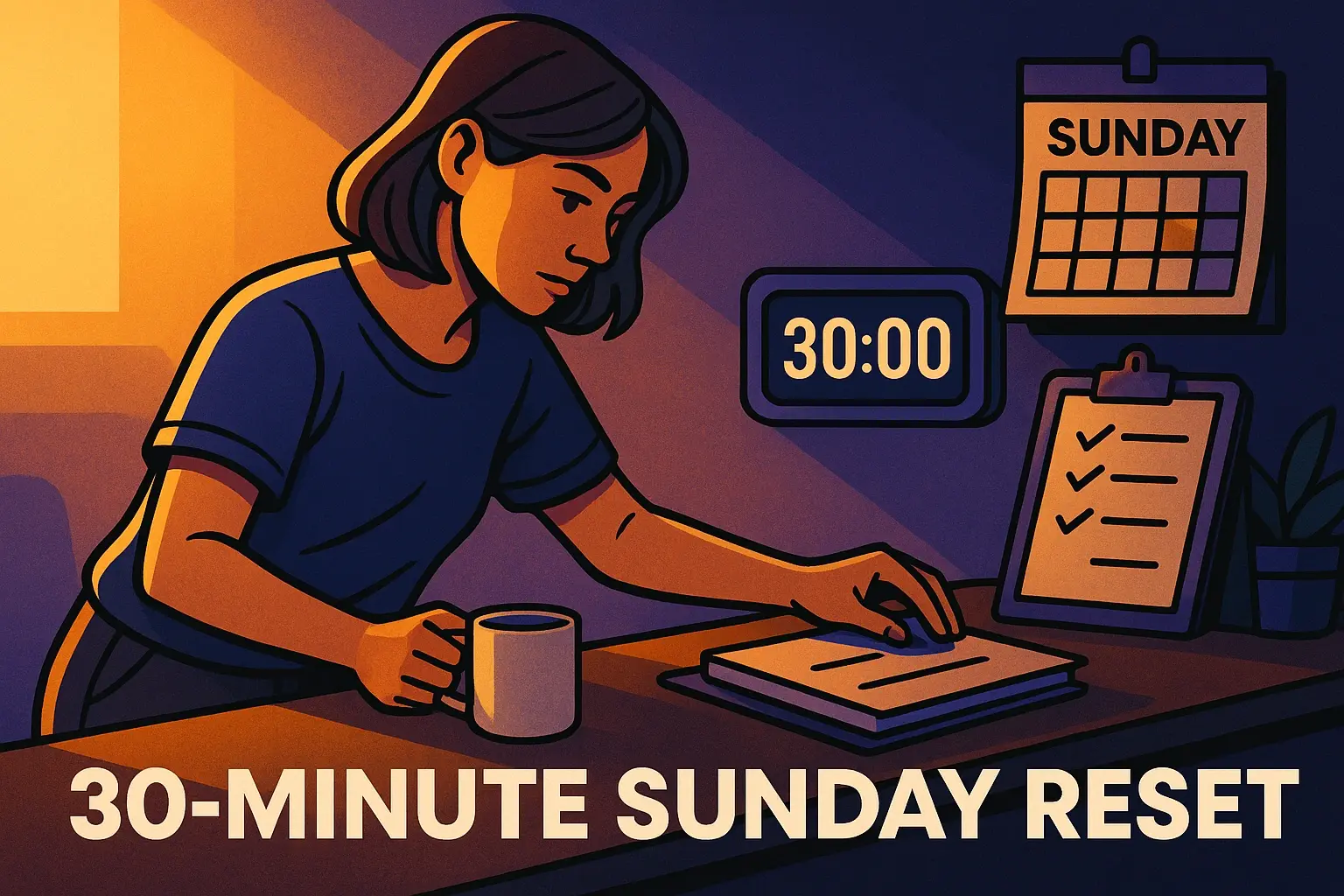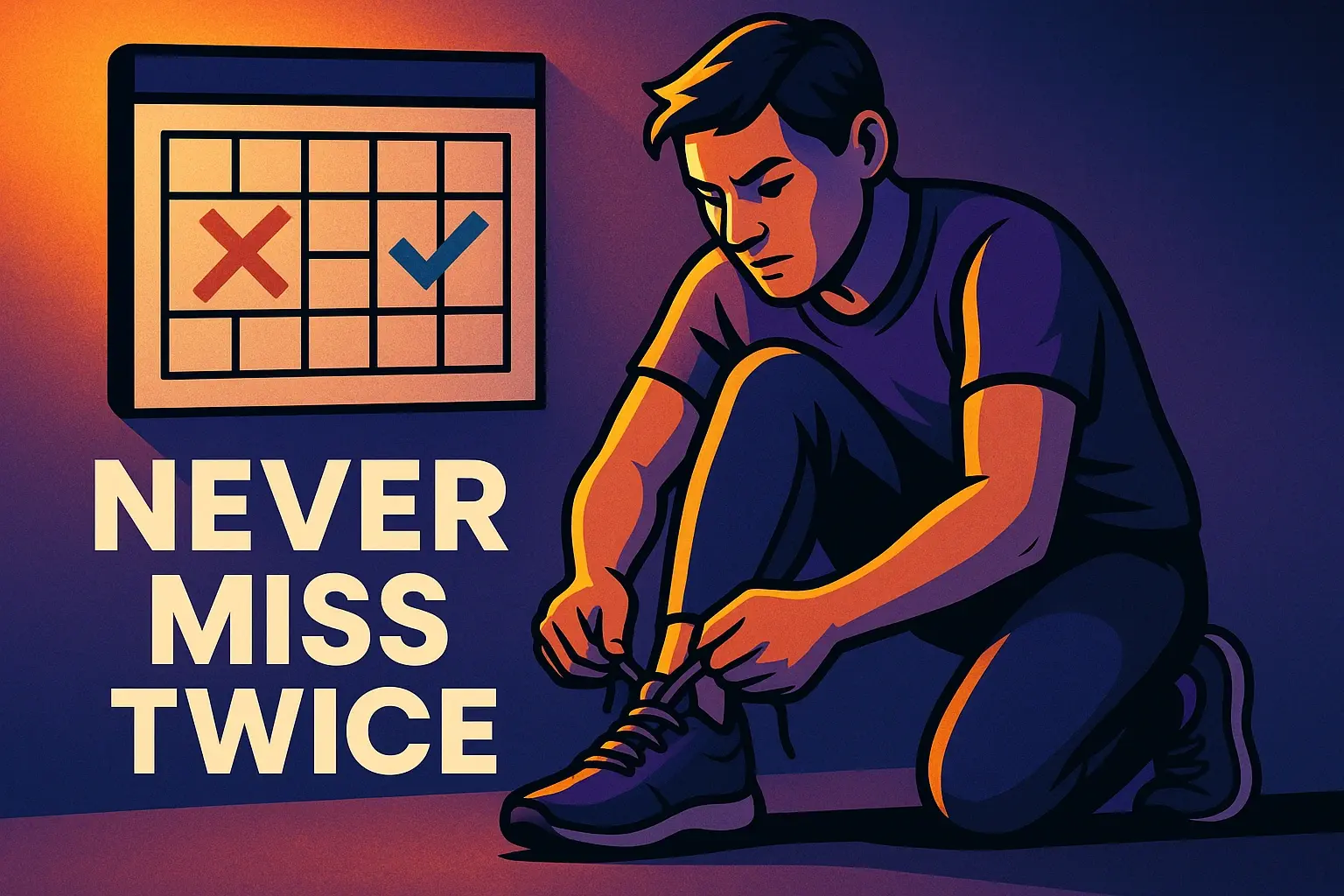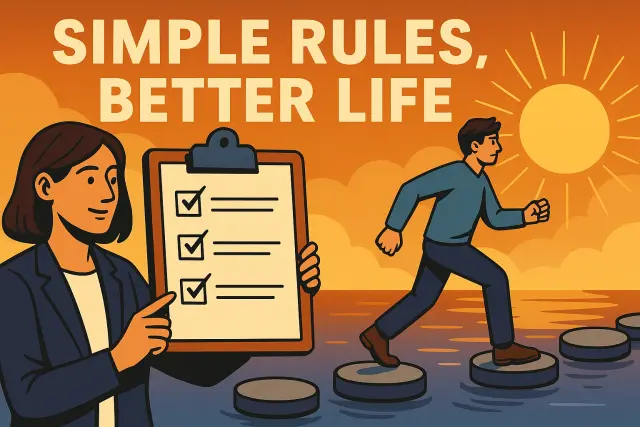Learn faster. Execute better.
Personal Development

Impostor Syndrome: Practical Tools to Handle It – Practical Tools That Actually Help
You can be competent, respected, even promoted—and still feel like you’re faking it. Impostor syndrome isn’t a diagnosis; it’s a brain habit: discount wins, magnify misses, and assume everyone else has it figured out. This guide replaces vague reassurance with a set of concrete moves that turn nervous energy into evidence, and evidence into confidence you can trust.

Mental Energy Management: Work With Your Natural Peaks
You’re not a machine with a steady output line—you’re a human with waves. Some hours your brain is razor‑sharp; others it’s foggy, fidgety, or fried. Most productivity advice ignores that reality and shames you for not being “consistent.” Energy management does the opposite: it helps you ride the waves you already have. When you map your natural peaks and troughs, align the right work to each window, and build quick recovery loops, you stop forcing output against biology and start getting more done with less strain.

The “One Big Thing” Rule: Finish What Matters First
Most days don’t collapse because you’re lazy—they collapse because your best energy gets spent on side quests. The “One Big Thing” rule flips that script: pick the one task that meaningfully moves your goals, protect a prime block for it, and finish before the world pulls you sideways. This isn’t hustle theater. It’s a humane constraint that reduces decision fatigue, quiets procrastination, and builds trust with yourself—one finished thing at a time.

The Sunday Reset — Plan Your Week in 30 Minutes
If your weeks keep starting in a scramble—emails dictating your focus, meetings pulling you off track, and priorities slipping through the cracks—you don’t need a bigger to‑do list. You need a lightweight reset ritual that lines up the next few days before they begin. In 30 minutes on Sunday, you can clear mental residue, set three priorities that fit your real capacity, and block a few focus windows so Monday starts calm and decisive. This guide gives you the exact checklist.

The Two-Day Rule: Stay Consistent Without Burnout
Most habits die in the gap between intention and recovery. You miss one day, feel behind, and miss three more trying to “get back on track.” The Two‑Day Rule breaks that spiral: never miss twice. If life knocks you off today, you simply show up tomorrow—at the smallest version if needed. It’s a humane standard that preserves momentum, prevents shame spirals, and keeps progress compounding without demanding perfection.

Timeboxing vs. To‑Do Lists — What Actually Works (And When)
If your to‑do list keeps growing while your calendar dictates your day, you’re not alone. Lists are great for capture—but terrible as a schedule. Timeboxing is the opposite: it gives work a home on your calendar, but can feel rigid if you over‑engineer it. The solution isn’t to pick a side; it’s to combine them. This guide shows you a simple hybrid: use a list to capture and prioritize, then timebox only the few blocks that create real momentum.
Book Summaries

Buy Yourself the F*cking Lilies – Summary & Key Lessons
Self-respect in action: small rituals, kinder self-talk, and practical boundaries that rebuild your inner life.

Influence by Robert Cialdini – Summary & Key Principles
The six classic persuasion principles—reciprocity, commitment, social proof, authority, liking, scarcity—and how to use them ethically.

The Power of Meaning – Summary & Key Lessons (Emily Esfahani Smith)
Four pillars of meaning—belonging, purpose, storytelling, transcendence—and practical ways to weave them into daily life.

The Rules of Life by Richard Templar – Summary & Key Lessons
Practical rules for clearer thinking, calmer relationships, and a life that compounds in the right direction.

Tribes by Seth Godin – Summary & Key Lessons
Build movements by telling a story, connecting people, and showing up with consistent leadership—even without formal authority.

Love Does by Bob Goff – Summary & Key Lessons
Playful, practical stories that turn love into verbs—take the call, show up, say yes, and let generosity lead.

The Road Back to You – Enneagram Essentials & Practical Takeaways
Understand your Enneagram type’s core motivations and traps—and use simple practices to grow beyond autopilot.

First, We Make the Beast Beautiful – Summary & Key Lessons (Sarah Wilson)
A humane, practical take on living with anxiety—rituals, reframes, and self-compassion that turn struggle into wisdom.

The Power of Moments – Summary & Key Lessons (Chip Heath, Dan Heath)
Learn how to design defining moments that elevate, insight, pride, and connection to transform customer experience, culture, and everyday life.